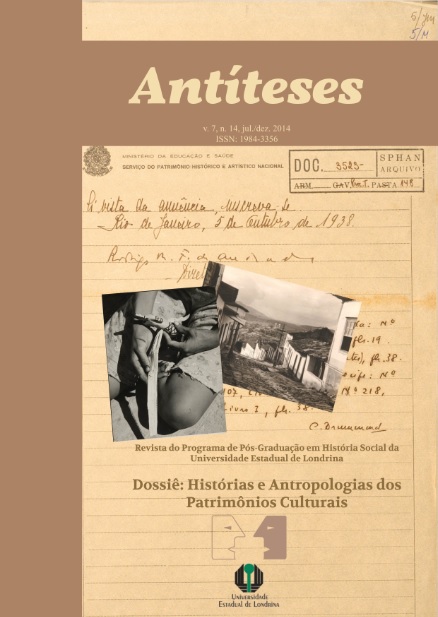Religious uprisings and fighting the devil: conceptions and social practices in North Africa between the fourth and fifth centuries
DOI:
https://doi.org/10.5433/1984-3356.2014v7n14p539Keywords:
North Africa, Persecution, Religious conflicts, Social practices, Late antiquityAbstract
This work aims to understand how the Christians of North Africa used the metaphor of "Fighting the Devil" in the context of the struggles for power in North African cities between the end of the fourth century and early fifth century. This work seeks to understand how Christians, who experienced persecution undertaken by the Roman government, conceived martyrdom as a fight against demonic forces. But also, how these conceptions were reworked in the process of building a Christian memory of violence after the peace of Constantine. From the analysis of the Acts of the Martyrs and Augustine of Hippo's works, we seek to identify how the discourse around Christian memory is built, and in which specific moments these memories of violence are activated. Finally, from specific studies of violent acts committed by rival religious groups, we attempt to find out how different groups used the metaphor of fighting the devil in order to justify the collective practices in the context of religious conflicts that took place among North African cities from the fourth to the fifth century.Downloads
Download data is not yet available.
Downloads
Published
2014-12-19
How to Cite
MORAIS, Juliana Marques. Religious uprisings and fighting the devil: conceptions and social practices in North Africa between the fourth and fifth centuries. Antíteses, [S. l.], v. 7, n. 14, p. 539–540, 2014. DOI: 10.5433/1984-3356.2014v7n14p539. Disponível em: https://ojs.uel.br/revistas/uel/index.php/antiteses/article/view/20552. Acesso em: 11 feb. 2026.
Issue
Section
Abstracts of Master Theses
License
Copyright (c) 2014 Antiteses

This work is licensed under a Creative Commons Attribution 4.0 International License.
The journal reserves the copyright on the contributions published, without material compensation for the author, and may make them available online in Open Access mode, through its own system or other databases; you can also make normative, orthographic and grammatical changes in the originals, in order to maintain the cultured standard of the language, with the final consent of the authors. The opinions expressed by the authors are their sole responsibility.










